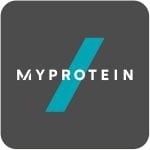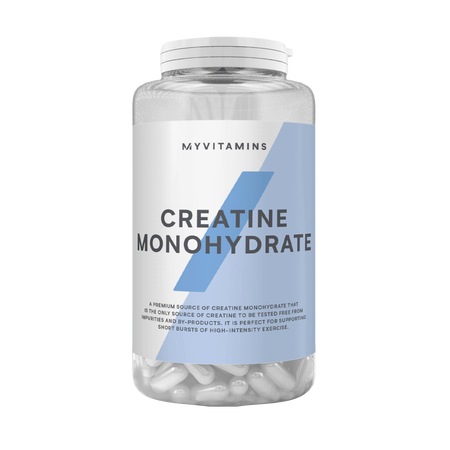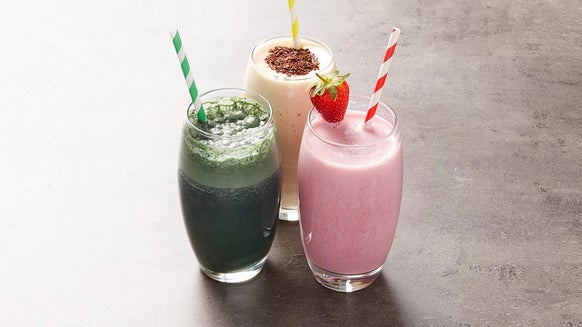
People have varying opinions on whether to use pre-workout or not. When used correctly, a pre-workout can be beneficial to a well-planned nutrition and training regimen. The only problem with the pre-workouts you buy already made is that sometimes you do not know how much of each ingredient is in the formula. Also, sometimes you might want more or less of one supplement, but you do not want to also take more or less of the others.
One solution to this problem is to make your own pre-workout. This way, you can pick and choose what supplements you use and you can tailor it to your specific needs. For example, if you want more stimulant one day because you are tired, you can just add a little more caffeine, but keep the rest of the ingredients dosages the same. Being able to pick and choose what is going into your pre-workout can be more beneficial that just using a pre-made formula. So, now you want to make your own pre-workout, but what ingredients should you buy, and how much of them should you use?

Disclaimer: Most of the dosages suggested in this article are for a 180 lbs. male, so you may need to scale accordingly. Also, none of these statements were not evaluated by the FDA.
The Pre-Workout Basics
If you want a good pre-workout that will give you a lot of benefits, but not be too many ingredients or very expensive, then stick with these next few supplements.
Creatine
If I had to choose just one supplement to recommend to new lifters, it would be creatine. Creatine is one of the most studied and proven supplements available, and it is also very inexpensive. The main benefit of creatine is that it is used by our bodies to create energy in the form of ATP, which helps with sports performance (4). Creatine has been shown to increase power output, which helps you to lift more weights, leading to more muscle stimulation and growth (7). Generally speaking, a loading phase is not needed, and the recommended dosage is 5 grams per day for everyone, no matter how big or small (4). If you are consistently taking 5 grams of creatine each day, the levels of it in your body will eventually rise.
Caffeine
One of the main reasons people take pre-workouts is to get the energy boost from a stimulant, and one of the most well-known and cheapest is caffeine. Caffeine is a very effective stimulant, but if you use it a lot your body can build up a tolerance to it, which will hamper its effects. One way to avoid this is to ingest as little caffeine as possible for about a week to a month to stop your body from getting used to it. The dosage will be different from person to person, but a good starting point is about 200 milligrams. For most people, caffeine is safe unless taken in extremely large doses, like 10 or more grams (2).
Beta-Alanine
Beta-alanine has become increasingly popular in the sports and fitness industry. There have been multiple studies done that have shown that beta-alanine can increase physical performance in high intensity exercises. The studies found that beta-alanine had the greatest effect on exercises lasting between 1 to 4 minutes, like weightlifting (6). The recommended dose is around 3 grams. In high doses, beta-alanine can cause you to feel tingly, but this is harmless. One way to combat this is to take multiple smaller doses, around 1 gram, throughout the day (1).
Other Options
The previous three supplements would make a great pre-workout on their own, or they could form a good base to build upon. The best part of making your own pre-workout is that you can tailor it to fit the specific benefits that you want. As a note, I am only going to specifically recommend the previous supplements listed because they have all been widely tested and are known to be relatively safe and are beneficial to sports performance. I would advise you to do your own research on any others supplements before you take them to ensure that they are safe and that you feel comfortable taking them.

There are a lot of different supplements available that are supposed to be beneficial, but the results are not as conclusive. If you want your pre-workout to help give you a better pump, you could add supplements like L-Citrulline Malate, L-Arginine, or Agmatine Sulfate. L-Citrulline is also claimed to help increase endurance and reduce fatigue during exercise. Maybe you want add green tea extract for a little metabolic boost to help you burn more fat. You could also add Branch Chain Amino Acids (BCAAs) to your pre-workout, like Leucine, Glutamine, Valine, etc., which could help with muscle growth, repair, and recovery.
Another benefit with adding BCAAs is that you can get them flavored to help your pre-workout taste good. Alternatively, there are a lot of different drink flavoring options, and a lot of zero calories ones, available that you could add to your formula. The benefit of this is that you could get a couple of different flavors so that you are not drinking the same flavor each day. You could mix and match the flavors, and you are not going to buy an expensive tub of pre-workout and discover that you do not like the taste.
Take-Home Message
There are a lot of benefits to making your own pre-workout. You can control the ingredients and the dosages of each supplement to give you the specific benefits that you want. Depending on how many supplements you choose, you might save money making your own instead of buying a pre-workout formula. You can also have many different flavor options to keep you from getting bored of a single flavor.
There are a lot of different supplements on the market, each with a number of claimed benefits. It is up to you to decide what you want to include and what you feel comfortable taking. Just make sure that you do your research and make sure that whatever ingredients you choose are safe and will not cause your body harm. Once you make your own pre-workout, you may never want to purchase a pre-made one again.











